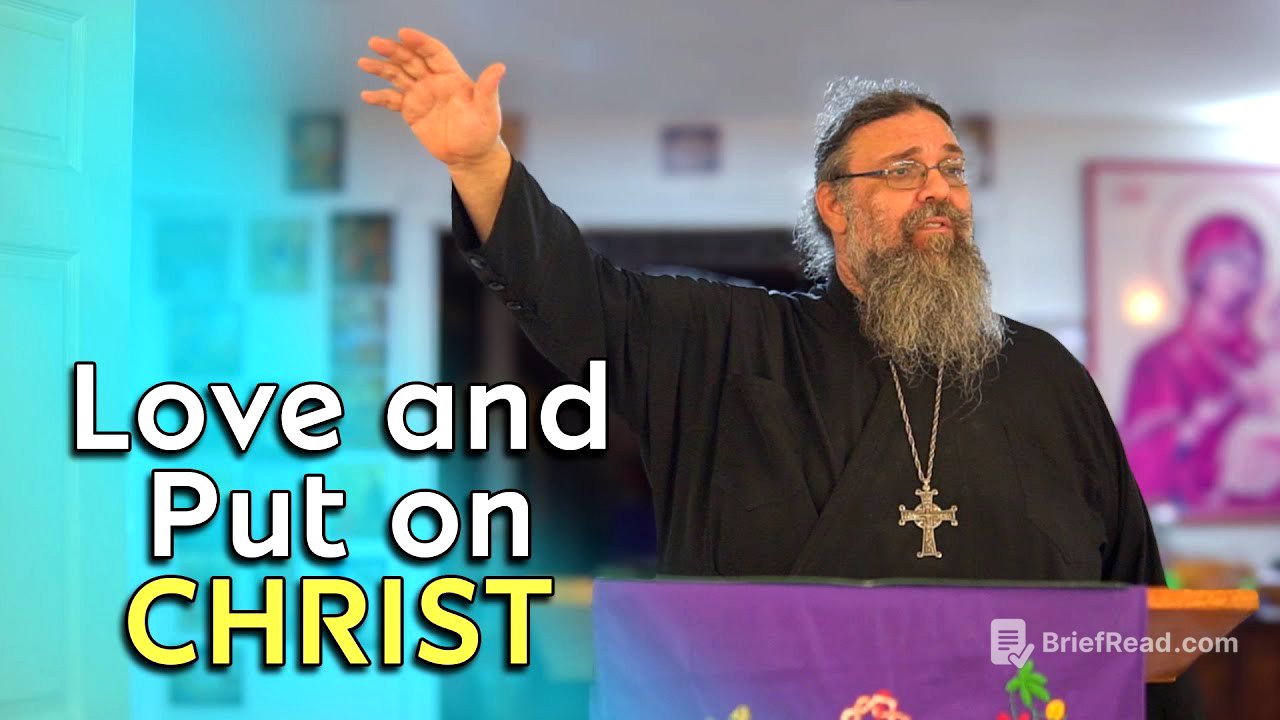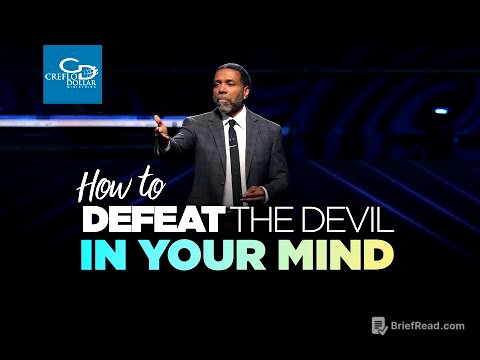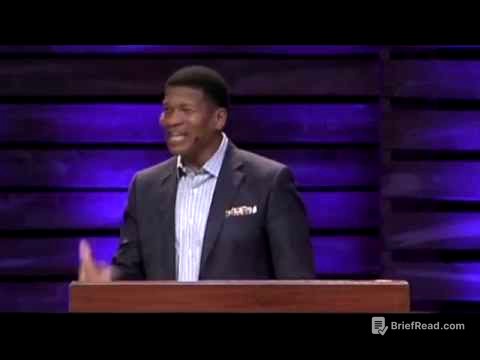TLDR;
This Bible study focuses on St. Paul's teachings in Romans, particularly concerning love, dispassion, and the Christian's relationship with authority and sin. It emphasizes the importance of loving one another, mastering passions rather than being ruled by them, and striving for spiritual wakefulness. The ultimate goal is to become more like Christ through theosis, a continuous process of transformation and aligning oneself with God's will.
- Respecting authorities and paying taxes as Christians.
- Loving one another as fulfillment of the law.
- Mastering passions instead of conquering them.
- Striving for spiritual wakefulness and transformation.
Introduction [0:00]
The session begins with a welcome and an announcement about the upcoming Holy Week, starting with Lazarus Saturday. It also marks the last class for the Lenten season, with plans to continue similar sessions monthly alongside night liturgies.
Respecting Authorities and Loving One Another [0:34]
Paul's letter to the Romans discusses the Christian duty to respect governing authorities and pay taxes, a concept that was particularly challenging for Jews due to their historical grievances with tax collectors and Roman rule. Paul emphasizes the importance of love, stating that to "owe no one anything except to love one another" fulfills the law. God is love, and Christians are called to share this love, overcoming selfishness and pride to see others through Christ's eyes.
Dispassion and Theosis [3:36]
Theosis, the process of becoming like God, continues into eternity, allowing for an ever-deepening understanding of God's love. Dispassion, the 29th step on the ladder of divine ascent, is defined as being unemotional or emotionally uninvolved, but it does not mean being passionless. Instead, it signifies mastering one's passions to better understand and augment the relationship with Christ. God's will is always working for the best in our lives, filtering through our intentions, and meeting us where we are, much like the father meeting the prodigal son.
The Kingdom of Heaven Within [9:19]
Passions, sins, and desires can distort virtues by tainting our thinking with pride and selfishness. It's crucial to adopt an orthodox mindset, recognizing that even good intentions can be mixed with ulterior motives. The will of God is intertwined with every moment of our lives, requiring trust and faith in His desire to save us. Dispassion helps sanctify the mind and detach it from material things, allowing one to experience the kingdom of heaven in the present.
Fulfilling the Law Through Love [12:36]
Paul reiterates that loving one's neighbor fulfills the law, encompassing commandments against adultery, murder, stealing, and coveting. King David understood the perfection of God's law, even though he couldn't fully keep it himself. The enemy tempts us with earthly happiness to distract us from holiness, while compulsive sin offers a false sense of thrill and justification. True Christianity is defined by love, making all other acts pointless without it.
Love Does No Harm [17:15]
Love does no harm to a neighbor, making it the fulfillment of the law. Paul, formerly Saul, transformed from persecuting Christians to becoming an apostle through Christ's illumination. Despite spending much of his ministry in prison, he ministered through God's grace. Love is a virtue that repeats and lasts forever, drawing us closer to God and transfiguring us into the image of Christ.
Putting on Christ [20:11]
It is always the right time to awaken spiritually and strive for holiness. Spiritual slumber, marked by apathy and lethargy, endangers our souls with every choice we make. The night symbolizes a time of sin and moral darkness, while the day represents abstaining from vice. Casting off the works of darkness and putting on the armor of light involves changing the noose and gaining divine understanding.
Walking Honestly in the Day [24:30]
Walking in Christ means living according to His statutes, treating others with respect, and showing compassion. Honesty is a high virtue, contrasting with the lies and bitterness of Satan. Living honestly in the day means avoiding orgies, adultery, lust, strife, and envy. Instead, one should put on the Lord Jesus Christ and make no provision for the flesh to fulfill its lusts.
Guarding the Joy of the Holy Spirit [32:49]
Guard the joy of the Holy Spirit and prevent the evil one from pouring out bitterness, lest paradise turn into hell. Progressing in life involves navigating spiritual storms and struggles, requiring one to give their best, especially in marriage and family life. Veterans of the Christian faith earn their faith through experience and build endurance to lead others to Christ.
Becoming Veterans as Christians [36:10]
All are called to be veterans as Christians, starting with establishing a prayer rule to master passions. Through shared heartaches, faith grows, and endurance is gained. By allowing Christ to master our lives, we become the men and women God intended us to be. Paul's writings are rooted in his own experiences, urging believers to desire testing as a means to become more like Christ.
Discussion on Irritation and Righteous Anger [38:54]
The discussion addresses the place of irritation, with the suggestion to strive for a state where one doesn't get easily irritated. Irritation can be a gateway to anger and hatred, but it's possible to be irritated without sinning. Righteous anger is appropriate for injustice and sin, but not for hating people. Preparation, both spiritual and practical, is essential, using the metaphor of driving to illustrate constant awareness and maintenance.
Spiritual Warfare and Conclusion [46:29]
The importance of supporting and correcting those who sin is emphasized, turning them back to the right path. Repentance involves a complete change of direction, and believers should gently address sinning brothers and sisters. Spiritual warfare is a significant aspect of the Christian walk, requiring awareness, sobriety, and vigilance. The session concludes with a blessing.









